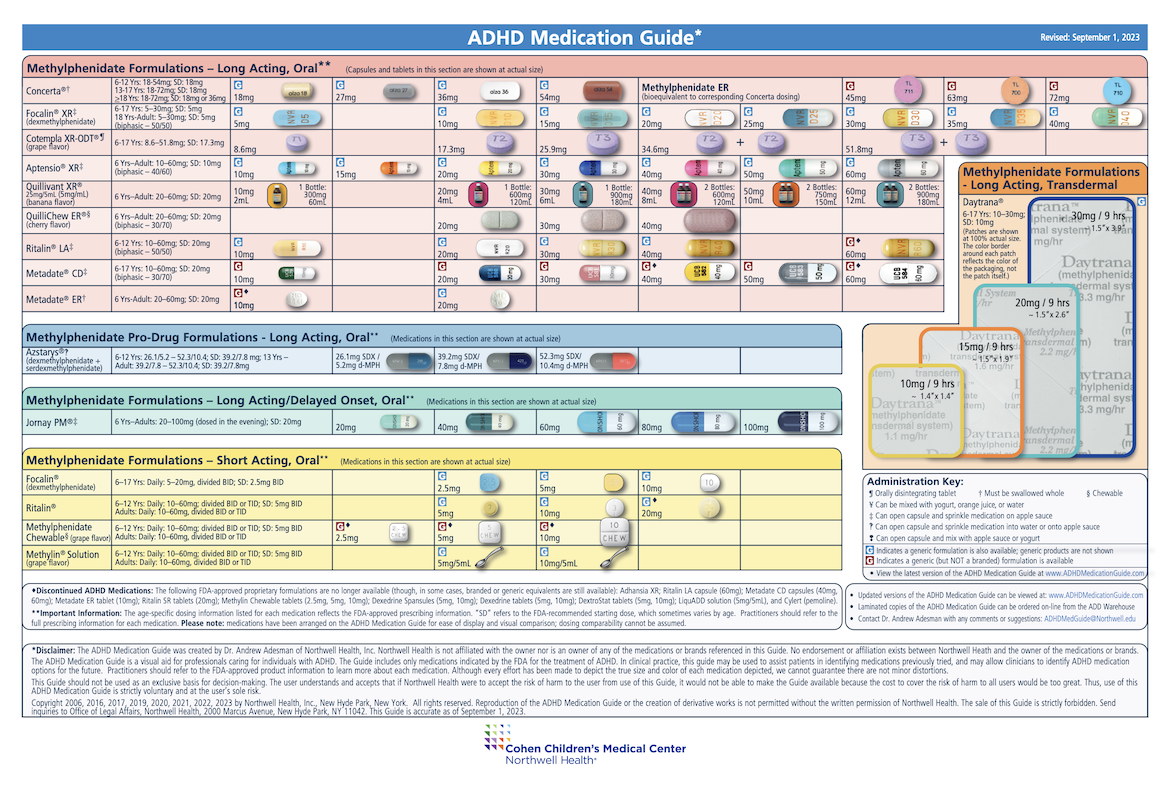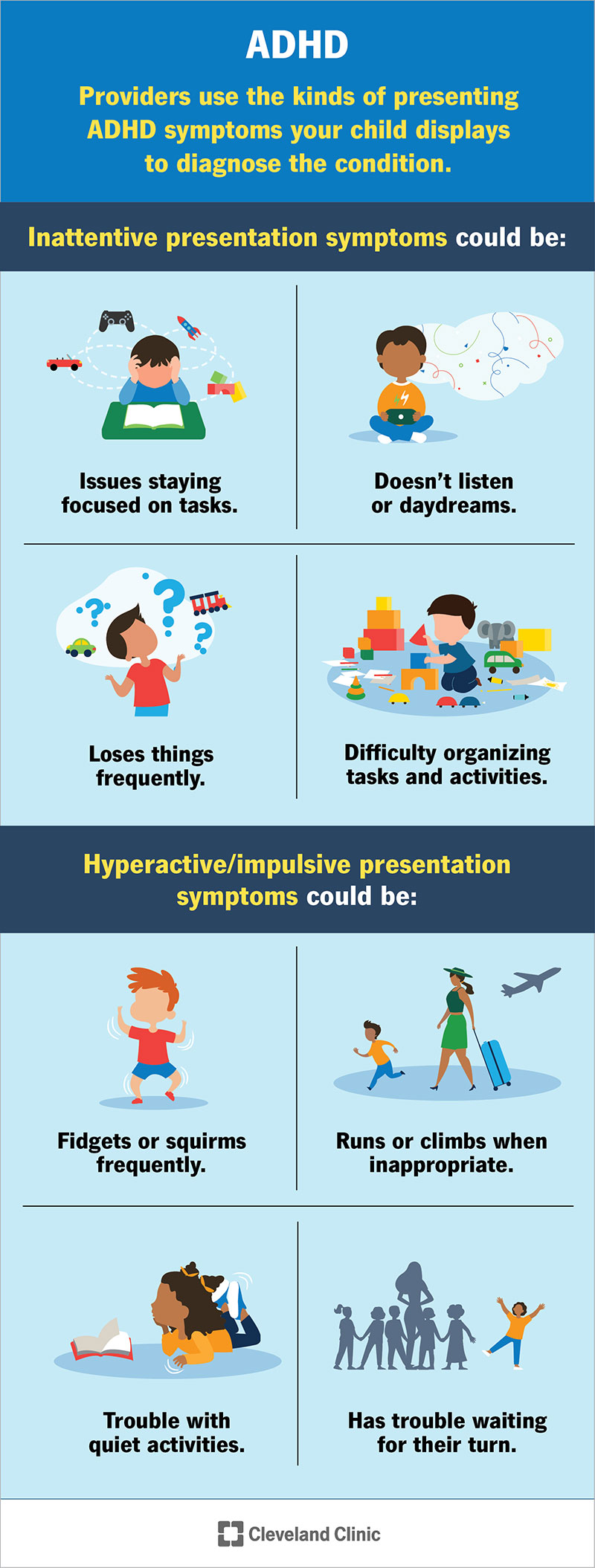The Advantages of Personalized ADHD Therapy Plans for Better Results
The application of personalized ADHD treatment strategies has emerged as a crucial technique in improving restorative end results for people influenced by this problem (ADHD treatment). By identifying the one-of-a-kind indications of ADHD in each individual, these tailored interventions promote greater engagement and motivation, ultimately leading to more effective coping strategies.
Recognizing ADHD Irregularity
Although Attention-Deficit/Hyperactivity Condition (ADHD) is often viewed as a singular problem, its manifestations can differ dramatically among people. Gender distinctions likewise play a duty, as men are much more regularly identified with ADHD and typically show much more overt signs and symptoms, whereas women might present with much less apparent inattentiveness.
Additionally, people with ADHD may experience a spectrum of emotional and behavior difficulties, such as stress and anxiety or oppositional defiance, that can make complex diagnosis and treatment. The interaction of these elements can cause varied experiences of ADHD, necessitating a nuanced understanding of the disorder. It is additionally worth noting that ADHD can provide in different ways throughout different cultural contexts, influencing just how symptoms are acknowledged and dealt with. This understanding highlights the relevance of acknowledging ADHD as a multifaceted condition, which requires individualized approaches to treatment that consider the one-of-a-kind needs and experiences of each individual.
Key Components of Customization
Customized ADHD treatment plans are grounded in a number of vital components that make sure reliable management of the condition. A detailed analysis is vital, involving standardized ranking scales, meetings, and behavioral monitorings. This complete examination enables clinicians to recognize the person's one-of-a-kind signs and symptoms, staminas, and challenges.
Second, the participation of multiple stakeholders, including parents, educators, and the person, adds to an all natural sight of the individual's requirements. Collaboration promotes an encouraging setting that can adjust to the person's context and way of life.
Third, therapy strategies must be flexible and versatile, enabling adjustments based upon ongoing comments and the person's evolving requirements. This flexibility enables the combination of numerous therapeutic techniques, such as behavior interventions, psychoeducation, and medicine monitoring.
Furthermore, social and contextual variables must be thought about. Identifying the person's background, values, and choices ensures that the treatment matters and considerate.
Last but not least, regular follow-ups and evaluations are important to monitor development and make needed changes. By focusing on these essential elements, individualized ADHD therapy strategies can significantly enhance the efficiency of treatments, bring about boosted end results for individuals this article with ADHD.
Improved Involvement and Motivation
To efficiently advertise improved involvement and inspiration in people with ADHD, it is vital to incorporate methods that reverberate with their passions and toughness. Individualized therapy strategies that straighten with a person's interests can bring about enhanced involvement in healing tasks, fostering a sense of ownership and enthusiasm for the process.
Utilizing interactive and innovative approaches can also considerably enhance inspiration. For instance, incorporating gamification elements or real-world applications of skills can make tasks a lot more attractive and appropriate. This not only captures attention but also reinforces learning via enjoyable experiences.
Moreover, setting achievable and purposeful objectives tailored to the individual can strengthen inspiration. When individuals see their progress towards directly substantial goals, they are a lot more most likely to stay involved. Normal responses and acknowledgment of accomplishments can even more sustain motivation, you could try here developing a positive responses loop that urges continued initiative.
Lastly, cultivating a helpful setting where individuals really feel understood and valued can dramatically affect their engagement degrees. When treatment plans are created collaboratively, including input from the individual, they are extra most likely to feel purchased their trip, eventually bring about improved results in taking care of ADHD.
Improved Coping Techniques
Establishing boosted dealing techniques is critical for individuals with ADHD, as it equips them with efficient devices to browse day-to-day challenges. An individualized therapy strategy allows for the identification of certain coping devices customized to the person's unique requirements and scenarios - ADHD treatment. Strategies such as mindfulness, time monitoring abilities, and organizational strategies can be integrated into everyday regimens, promoting a feeling of control and reducing anxiety
Mindfulness practices, including meditation and deep-breathing exercises, aid individuals with ADHD concentrate their focus and manage their emotions. Time monitoring strategies, such as using timers or breaking tasks into smaller, workable actions, can alleviate sensations of bewilder. Furthermore, organizational tools like coordinators and checklists can enhance efficiency and accountability.
Long-term Favorable End Results
Applying personalized ADHD treatment strategies can lead to significant long-term positive end results for people. These customized strategies, which take into consideration special click to read more signs and symptoms, choices, and life scenarios, assist in a lot more reliable administration of ADHD symptoms over time. By concentrating on the specific demands of the person, these strategies boost adherence to therapy procedures and foster higher interaction in restorative activities.

Moreover, personalized treatment plans can substantially lower the risk of comorbid problems, such as stress and anxiety and depression, which are often connected with ADHD. Early treatment and constant support aid people build strength and coping methods, advertising total mental health.
Inevitably, the long-lasting favorable outcomes of individualized ADHD therapy intends not only enhance the quality of life for individuals yet additionally add to their total well-being and success in various life domain names. This alternative approach emphasizes the relevance of customized treatment in handling ADHD successfully.
Conclusion
